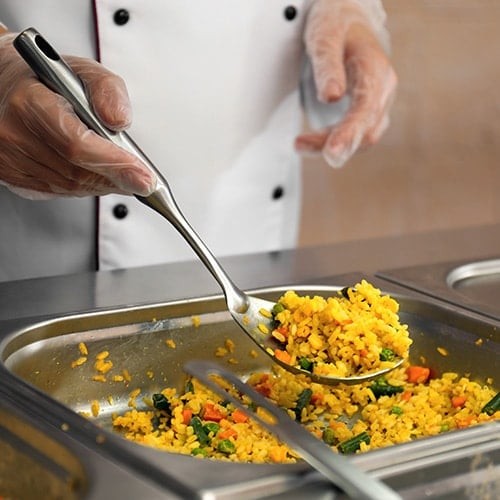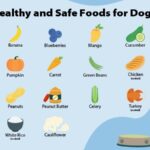You’re likely aware of the critical importance of food safety and the risks associated with cross-contamination. However, are you familiar with the specific foods that don’t require stringent temperature control? While Time/Temperature Control for Safety (TCS) foods demand careful monitoring to prevent bacterial growth and foodborne illnesses, many other foods can be safely stored at room temperature. Let’s explore which foods fall into this category.
Understanding Temperature Control in Food Safety
Before diving into the list of foods that don’t need temperature control, it’s essential to understand why temperature control is so vital for certain foods. TCS foods, by definition, are those that support the rapid growth of bacteria if left at room temperature for extended periods. This “temperature danger zone” (between 41°F and 135°F) is where bacteria multiply most rapidly, increasing the risk of foodborne illness. Conversely, foods that lack moisture, have high acidity, or contain preservatives often resist bacterial growth and don’t necessitate strict temperature control.
Foods That Don’t Require Temperature Control
So, which foods do not need temperature control? Here’s a detailed breakdown:
-
Dry Goods:
- Dried Beans and Legumes: Kidney beans, lentils, and other dried legumes have minimal moisture content, inhibiting bacterial growth.
- Dried Grains: Rice, pasta, oats, and other grains in their dried form can be stored at room temperature.
- Flour and Sugar: These dry ingredients lack the moisture needed for bacterial proliferation.
- Cereals: Uncooked and dry cereals.
-
Unopened Canned and Jarred Foods:
- Canned Fruits and Vegetables: The canning process creates a sterile environment, preventing bacterial growth as long as the can remains sealed and undamaged.
- Jarred Sauces and Preserves: Similar to canned goods, jarred items undergo heat processing and sealing to ensure safety at room temperature until opened.
-
Uncut Fruits and Vegetables (Whole, Unprocessed):
-
Whole Fruits: Apples, bananas, oranges, and other whole fruits possess natural defenses against bacterial invasion due to their intact skin and acidity.
-
Whole Vegetables: Potatoes, onions, garlic, and other root vegetables can be stored at room temperature, provided they are dry and free from damage.
-
-
High-Sugar Foods:
- Honey, Jams, and Jellies: The high sugar content in these products inhibits bacterial growth.
-
Processed Foods in Airtight Packaging:
- Crackers, Cookies, and Snack Foods: Packaged snack foods with low moisture content and preservatives can generally be stored at room temperature until opened.
-
Bread: Bread is not considered a TCS food because it doesn’t provide a moist environment where bacteria can thrive. Bread is more susceptible to mold growth than the types of bacteria that cause foodborne illness.
Important Considerations
While the foods listed above generally don’t require refrigeration, it’s still crucial to follow these guidelines:
- Storage Environment: Store foods in a cool, dry place away from direct sunlight.
- Proper Packaging: Ensure food is stored in airtight containers to prevent moisture absorption and pest contamination.
- “Use By” Dates: Always adhere to “use by” or “expiration” dates printed on packaged foods.
- Post-Opening: Once canned or jarred foods are opened, they typically require refrigeration to maintain safety and quality.
- Visual Inspection: Regularly inspect stored foods for signs of spoilage, such as mold, discoloration, or off-odors.
TCS Foods: A Quick Recap
In contrast to the foods listed above, it’s important to remember which foods do need temperature control. These include:
- Meat and Poultry
- Milk and Dairy Products
- Fish and Shellfish
- Eggs
- Tofu and Soy Products
- Cooked Potatoes
- Sprouts
- Cut Leafy Greens
- Cut Tomatoes and Melons
- Cooked Rice, Beans, Grains, and Vegetables
- Untreated Garlic and Oil Mixtures
Conclusion
Understanding which foods do not need temperature control is an important aspect of food safety. By properly storing non-TCS foods and diligently managing TCS foods, you can significantly reduce the risk of foodborne illness and maintain a safe and healthy food environment. Always prioritize food safety best practices and stay informed about the latest guidelines to protect yourself and others.
Further Resources
For more information on food safety and handling, consult these resources:
- Your local health department
- The USDA Food Safety and Inspection Service (https://www.fsis.usda.gov/)
- The FDA Food Safety website (https://www.fda.gov/food/)

